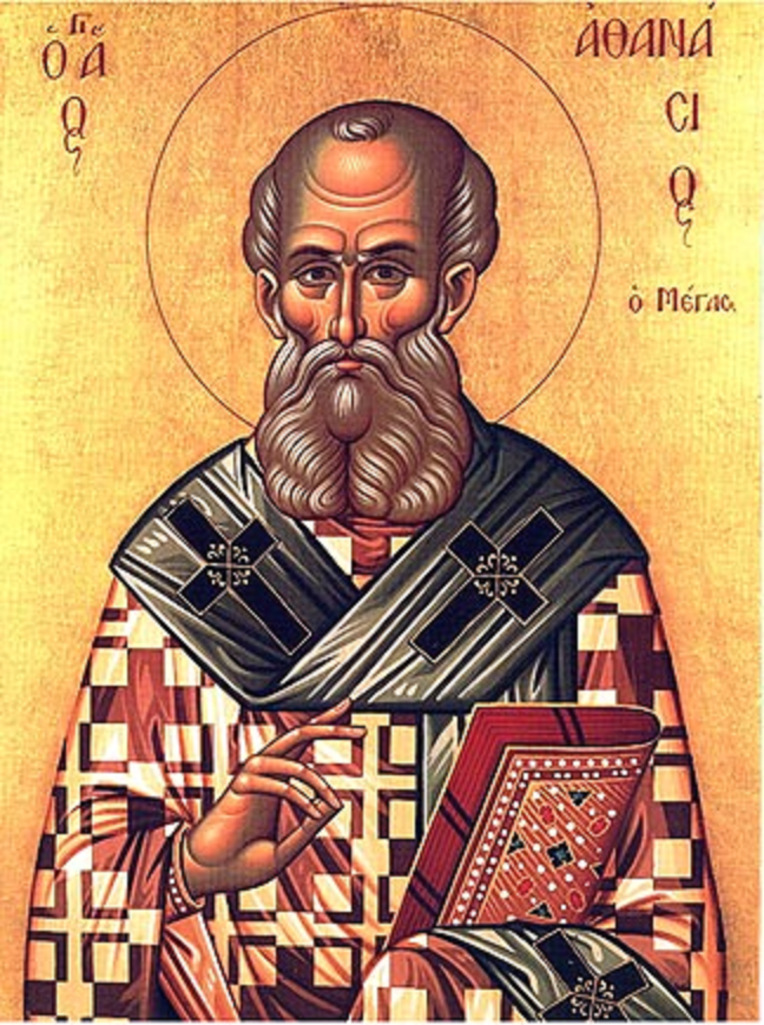Synopsis Of Holy Scripture on:
[Wikipedia]
[Google]
[Amazon]
 Synopsis of Holy Scripture or Synopsis Scripturae Sacrae is an early Christian text in
Synopsis of Holy Scripture or Synopsis Scripturae Sacrae is an early Christian text in
The Synopsis Scripturae Sacrae at Documenta Catholica Omnia
 Synopsis of Holy Scripture or Synopsis Scripturae Sacrae is an early Christian text in
Synopsis of Holy Scripture or Synopsis Scripturae Sacrae is an early Christian text in Greek
Greek may refer to:
Anything of, from, or related to Greece, a country in Southern Europe:
*Greeks, an ethnic group
*Greek language, a branch of the Indo-European language family
**Proto-Greek language, the assumed last common ancestor of all kno ...
, which has been falsely attributed to Athanasius
Athanasius I of Alexandria ( – 2 May 373), also called Athanasius the Great, Athanasius the Confessor, or, among Coptic Christians, Athanasius the Apostolic, was a Christian theologian and the 20th patriarch of Alexandria (as Athanasius ...
. The writing has been variously dated to either the 4th, 5th or 6th centuries, although most often to the 6th century.
Significance
Textual Critical
The Synopsis Scripturae Sacrae has been cited by F.H.A Scrivener as among the two only Greek Patristic references to theJohannine Comma
The Johannine Comma () is an interpolated phrase (comma) in verses of the First Epistle of John.
The text (with the comma in italics and enclosed by brackets) in the King James Version of the Bible reads:
In the Greek Textus Receptus (TR), t ...
in 1 John 5:7 (A variant within the Epistle of John primarily found only in Latin manuscripts). The other Greek reference being the Disputation against Arius, made by another Pseudo-Athanasian author.
The Synopsis Scripturae Sacrae is also one of the few Greek references to the Pericope Adulterae
Jesus and the woman taken in adultery (or the ) is a passage (pericope) found in John 7:53–John 8#Pericope adulterae, 8:11 of the New Testament. It is considered by many to be Pseudepigrapha, pseudepigraphical.
In the passage, Jesus was t ...
within the Patristic era alongside Didymus the Blind
Didymus the Blind ( Coptic: ; 398), alternatively spelled Dedimus or Didymous, was a Christian theologian in the Church of Alexandria, where he taught for about half a century. He was a student of Origen, and, after the Second Council of Constant ...
, the Apostolic Constitutions
The ''Apostolic Constitutions'' or ''Constitutions of the Holy Apostles'' (Latin: ''Constitutiones Apostolorum'') is a Christian collection divided into eight books which is classified among the Church Orders, a genre of early Christian litera ...
and the Didascalia. He refers to John 7:53-8:11 while discussing Nicodemus at the end of John 7.
Canon
The Synopsis Scripturae Sacrae contains a list of the Old Testament canon. He lists the canon in accordance with the Hebrew Alphabet, separatingJudges
A judge is an official who presides over a court.
Judge or Judges may also refer to:
Roles
*Judge, an alternative name for an adjudicator in a competition in theatre, music, sport, etc.
*Judge, an alternative name/aviator call sign for a membe ...
and Ruth
Ruth (or its variants) may refer to:
Places France
* Château de Ruthie, castle in the commune of Aussurucq in the Pyrénées-Atlantiques département of France
Switzerland
* Ruth, a hamlet in Cologny
United States
* Ruth, Alabama
* Ruth, Ark ...
, but not including Esther
Esther (; ), originally Hadassah (; ), is the eponymous heroine of the Book of Esther in the Hebrew Bible. According to the biblical narrative, which is set in the Achaemenid Empire, the Persian king Ahasuerus falls in love with Esther and ma ...
. The author identified Esther, Sirach
The Book of Sirach (), also known as The Wisdom of Jesus the Son of Sirach, The Wisdom of Jesus son of Eleazar, or Ecclesiasticus (), is a Jewish literary work originally written in Biblical Hebrew. The longest extant wisdom book from antiqui ...
, Judith
The Book of Judith is a deuterocanonical book included in the Septuagint and the Catholic Church, Catholic and Eastern Orthodox Christianity, Christian Old Testament of the Bible but Development of the Hebrew Bible canon, excluded from the ...
, Tobit and the Wisdom of Solomon
The Book of Wisdom, or the Wisdom of Solomon, is a book written in Greek and most likely composed in Alexandria, Egypt. It is not part of the Hebrew Bible but is included in the Septuagint. Generally dated to the mid-first century Anno Domini, ...
as non-canonical.
External links
The Synopsis Scripturae Sacrae at Documenta Catholica Omnia
References
{{Reflist 6th-century Christian theologians 5th-century Christian theologians 4th-century Christian theologians